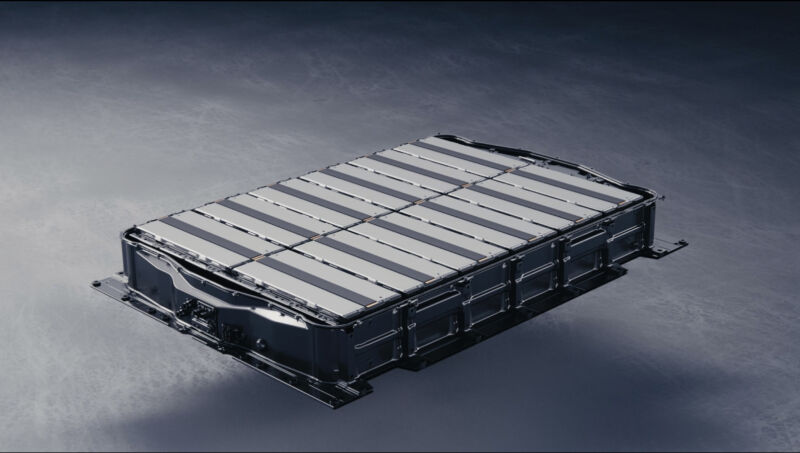
The US Department of Energy announced a big boost to domestic electric vehicle battery production on Monday. It's loaning $2.5 billion to a company called Ultium Cells, a joint venture between General Motors and LG Energy Solution that will build batteries for the automaker's new range of EVs. The funds will help with the construction of three new battery plants in the US—in Lansing, Michigan; Lordstown, Ohio; and Spring Hill, Tennessee—as part of GM's plan to build 1 million EVs a year by 2025.
US battery production is set for massive growth in the coming years. First, the pandemic disrupted shipping, exposing the fragility of global just-in-time supply lines. Then, the Inflation Reduction Act of 2022 tied an EV's potential tax credit to the domestic content of that EV's battery pack, in terms of raw materials and final assembly. Each year, an escalating proportion of the battery must be domestic in order to qualify for the credits of up to $7,500.
However, it's unlikely that the automakers or their battery suppliers were taken by surprise. Linking EV incentives to local manufacturing was proposed in 2021 by a group of lawmakers in a more ambitious infrastructure bill that would have added an extra credit for vehicles made by unionized workers. (That bill did not survive contact with Senator Joe Manchin.)
Consequently, we have seen a flurry of new battery factory announcements of late. In September 2021, Ford said it and SK Innovation would create 11,000 new jobs at three BlueOvalSK battery factories in Kentucky and Tennessee. A month later, Toyota said it would spend $3.4 billion on US battery production. That same day, Stellantis revealed it had created a joint venture with LG to open a 40 GWh/year battery plant in the US by 2024.
This July, we learned Volkswagen was looking for US sites for closed-loop battery factories, each with an annual output of 40 GWh. In October, BMW announced a $700 million investment in a battery assembly plant in South Carolina, near where it builds most of its SUVs. And Honda and LG inked a joint venture to build another 40 GWh/year facility in Ohio, home to several of that automaker's manufacturing sites already.
As for GM, it has begun a massive electrification effort, underpinned by a new standard battery platform across its brands. The batteries, called Ultium cells, are pouch cells that use nickel-cobalt-manganese-aluminum chemistry and can already be found in new EVs like the BrightDrop Zero 600 delivery van, the Hummer EV, and Cadillac's Lyriq SUV. But GM has many more EVs arriving in the near future, including an electric Silverado truck and a $30,000 Equinox EV, plus a range of cheaper EVs made in partnership with Honda due for 2027.
The loan was granted under DOE's Advanced Vehicle Technology Manufacturing program. Dating back to 2008, the ATVM program was vital to Tesla's early success, but other EV makers funded around that time did not fare so well, and the loan program barely survived the Trump government. But now, under US President Joe Biden, supporting green manufacturing is once again a national priority.
"DOE is flooring the accelerator to build the electric vehicle supply chain here at home—and that starts with domestic battery manufacturing led by American workers and the unions that support them," said US Secretary of Energy Jennifer Granholm. "This loan will jumpstart the domestic battery cell production needed to reduce our reliance on other countries to meet increased demand and support President Biden's goals of widespread EV adoption and cutting carbon pollution produced by gas-powered vehicles."
reader comments
80